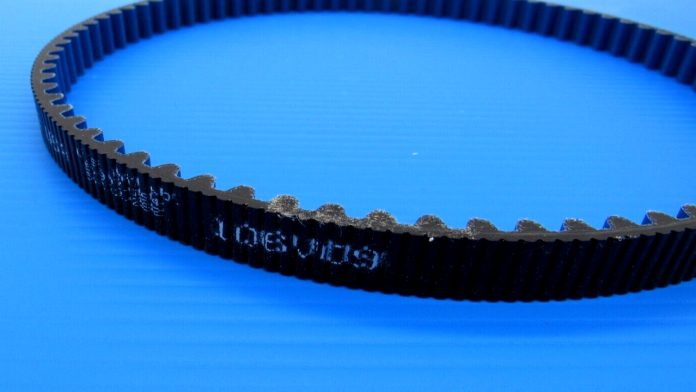Synchronous power transmission is one of the essential aspects in realizing accuracy and efficiency in the contemporary industrial setting. Among the most well-known developments in this application area are the Poly Chain Timing Belts, a technology that revolutionized the concept of toughness, speed, and robustness. Embedded herein, this article focuses on the aspects of power transmission belt technology concerning carbon fiber-reinforced Poly Chain Belt.
Composition of Poly Chain Timing Belts
Poly Chain Timing Belts are made from abrasion-resistant urethane, making them suitable for use in areas that should not produce dust, which is a paramount consideration in clean and safe environments. These belts have teeth coated with nylon to reduce friction and protect the wearing surface, thus increasing belt durability. Yet another characteristic worth mentioning regarding these poly chain belts is carbon fiber reinforcement. This advanced reinforcement increases the belt strength, decreases stretching, and provides far better impact protection. These attributes make Poly Chain Timing Belts suitable for difficult-to-satisfy industrial operations that may demand constant reliability of the production line and, therefore, increased durability of the belt.
A Technological Breakthrough in Poly Chain Belts
Carbon Fiber Poly Chain Belts are the next generation of belt technology. These belts incorporate state-of-the-art carbon fiber technology and have a distinct tooth jacket material. This material provides reinforcement, increased tensile strength, and exceptional wear resistance. When bought from reputed brands such as ZZR, these poly chain carbon fiber belts stand out and outperform other belts in strength and power transmission.
Carbon Fiber Poly Chain Belts themselves are substantiated with professional engineering knowledge and sophisticated manufacturing technology. These developments have made it possible to produce more slender but stronger Synchronous power transmitting belts, increasing the compactness of packaging related to industrial systems.
Other Benefits of Poly Chain Belt
High Strength and Durability
Carbon fiber reinforcement allows superior bearing of tensile loads, and these belts cannot stretch when under load or when exposed to extreme conditions. Such properties are required in industries where frequent replacement of belts cannot be done only because of stretching in belts.
Shock Resistance
The belts are further designed to withstand changes in loads and impacts and should, therefore, be suitable for dynamic applications.
Reduced Friction
This nylon jacket reduces friction between the pulleys and the teeth, minimizing energy loss and wear and tear on the belt and thus increasing its durability.
Dust-Free Operation
They are manufactured from abrasion-resistant urethane, which keeps the working environment free from contamination, which is important in places such as the food processing industry and healthcare.
Compact Design
New carbon fiber belts are stronger, enabling the construction of smaller, lightweight power transmitting systems that are efficient within the system.
Versatile Applications
Poly Chain Timing Belts and their carbon fiber representations are used universally in various sectors, including manufacturing, robotics, and automotive industries. Their flexibility, accuracy, and fast and reliable power transmission make them invaluable in industrial establishments.
Conclusion
Poly Chain Belts, especially the Carbon Fiber Poly Chain varieties, provide real-life samples of how advanced materials and technology are within the industrial parts realm. In terms of strength, durability, and efficiency, these belts meet the expectations of modern industries and even exceed them, creating new standards for synchronous power transmission.








